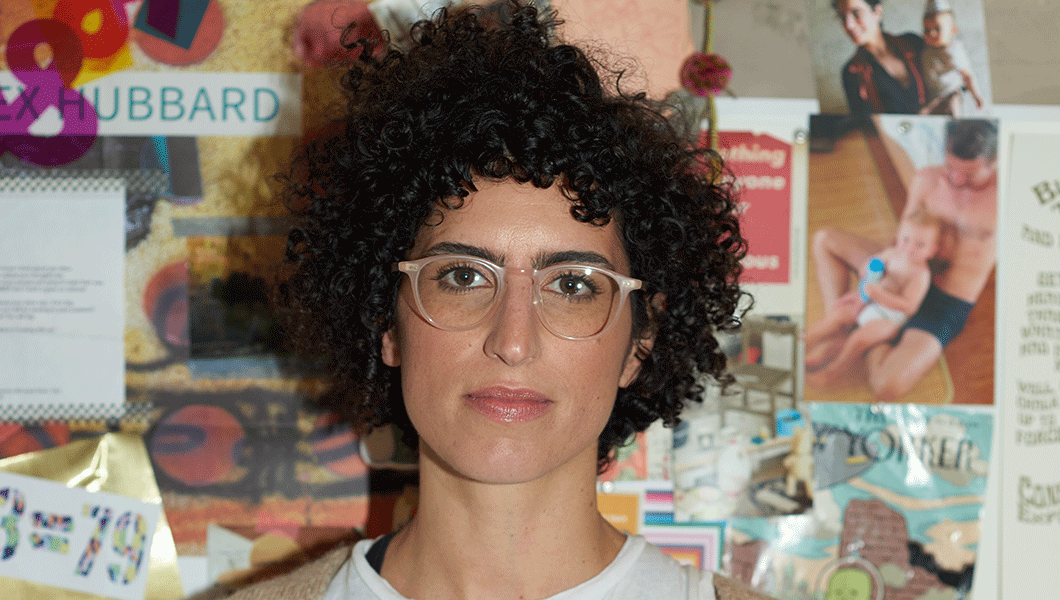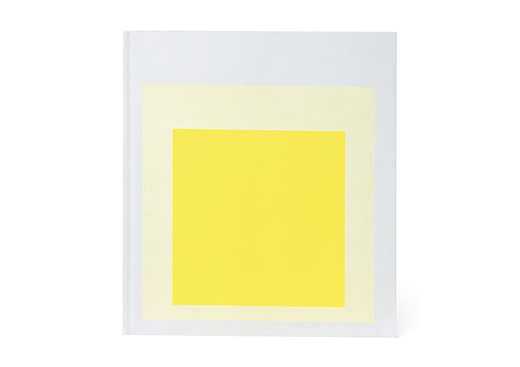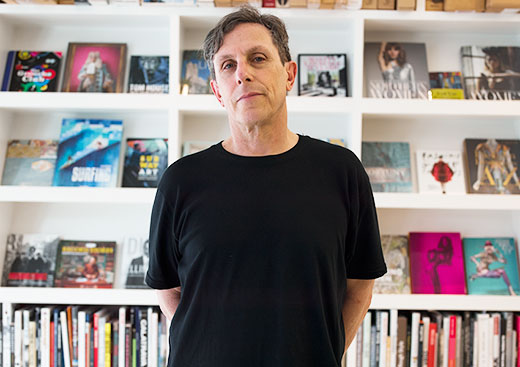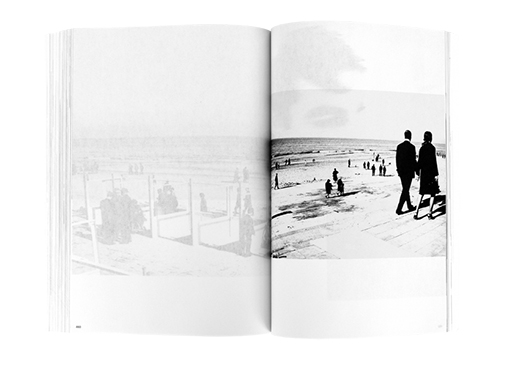The gun-toting Hierophant, the false prophet in director and artist Aaron Rose’s collection of poster-sized tarot cards, looks like he just walked out of mob movie. “The shooting target tarot deck” is as “good in a frame as it is at the gun range,” reads the tongue-in-cheek description of Rose’s handiwork on Paper Chase Press’s website. Rose calls his deck “Trump Cards,” and they’re among the smartly designed projects available from Infoshop, Paper Chase’s newly launched platform for art and design experiments with political edge. Proceeds for certain posters — including artist Jibade-Khalil Huffman’s red-on-gray call to “Name streets after more black and brown heroes in black and brown neighborhoods” — go entirely to the ACLU. The t-shirt designed by Berlin-based Ketuta Alexi-Meskshivili, rust-on-white tie-dye, says “Sad!” largely and ambiguously, just as the 45th president often does.
“As the owner of a printing press I feel an obligation to use it for more than just commercial projects,” says Nicole Katz, the CEO of Paper Chase Press, of Infoshop, which launched at the end of February. “This might have to do with my grandmother’s influence,” she adds. Her grandmother was a political activist in pre-war Poland, and Katz has also worked with certain of Infoshop’s artist-contributors before. Katz moved back to Los Angeles in 2008 after a brief time in New York’s art world, to open an art space next door to Paper Chase, the press her parents founded out of their basement in 1976. Located on Sunset Boulevard in Hollywood’s seedy core, near a flamboyantly purple strip club called Seventh Veil, the press has a modest façade and simple logo: a scroll of paper unfurling. Katz and her husband and partner Kane Austin named their gallery Eighth Veil, since it would abut the strip club.
This was in the wake of the recession, though businesses began cutting advertising budgets even before the market crash, outsourcing printing to China. Katz’s father had bought a digital press, meaning to refocus his business on short-run, more intimate jobs, but he started contemplating retirement. “We were convinced to take it over,” says Katz. “It wasn’t until I came back to LA, that I realized what I’d been doing professionally in the art world was very much related to print.” Even as Eighth Veil quietly closed, she would be helping artists realize projects, curating images and objects, bringing creative people together.
“The transition was rough,” Katz recalls. Neither she nor Austin had business training, and they had to reach out to new clients who might benefit from their digital press, reimagining the pricing structure and market new services. “As we started assembling our own team together, it got better,” says Katz. “The print world is dominated by men. I knew I wanted a collaborative environment and that in my experience working with women fosters that. The company needed the freedom to take risks on projects that were out of the box for us, and having a team that is comfortable asking questions and working together is key to making that happen.”
The staff is currently sixty percent female, and as collaborative as Katz wanted it to be. “Now when people bring us their crazy projects, we can all sit down as a team and figure them out.” Their clientele, which often grows by word of mouth, remains largely local, though a number of clients come from New York’s world of creatives, too — they printed a catalogue of painter Sue Williams’ comically crass work for 303 Gallery in Chelsea in 2015. They also launched Paper Cuts, a stationary platform for which the press collaborates with its own clients to design and print notepads, letterhead, envelopes or cards. The Hollywood-based Hopewell Workshop made delicate notecards with quilting patterns on each.
“A lot of people we work with have ideas for printed goods they want to make, and we can say to them, let’s do it!” says Katz. “Our whole business is built upon collaborative relationships.”
Paper Chase takes its time on projects, and tends to work with people who value craftsmanship, but that doesn’t mean the press favors design professionals or galleries. “I whole-heartedly believe there isn’t a client out there who wouldn’t benefit from beautiful printing,” says Katz, who has found working at the press as stimulating as running an art space, if not more so. “We’re producing hundreds of projects each month. Each is so different than the last in its scope and clientele, it keeps everything really fresh.” She also likes producing physical products, and printed products can be easier than art objects to disseminate — posters in the Infoshop, for instance, start at $3 a piece. “I love that the process involves working with many different types of people, and the outcome is something that’s democratic and can live anywhere.”





